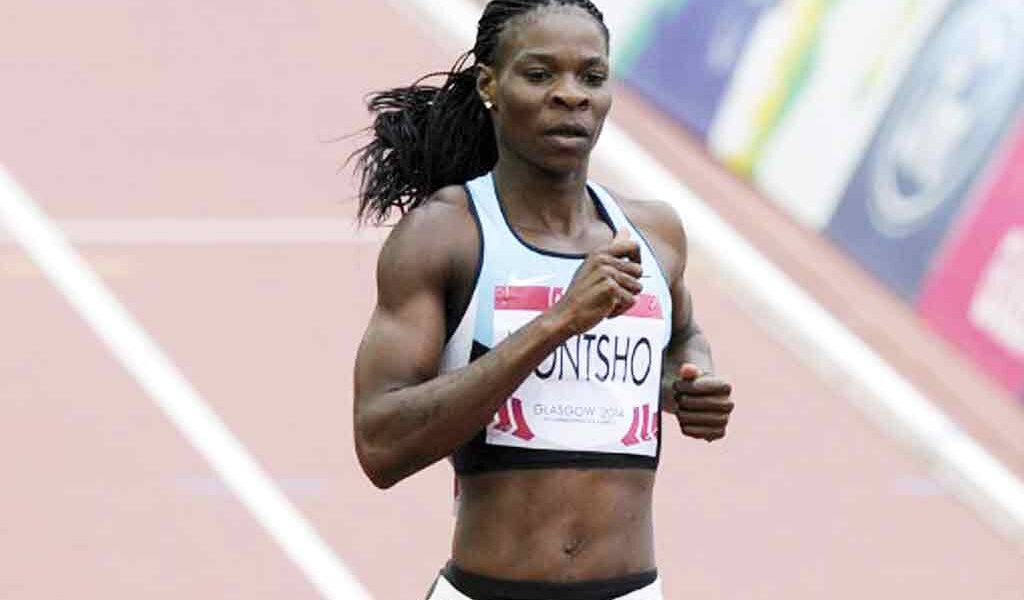BONGANI MALUNGA
In July 2014, the nation was at a standstill upon the revelation of national icon Amantle Montsho’s failed drug test, the multi-award winning former 400m women’s world champion tested positive for a banned substance named Methylhexaneamine at the Glasgow 2014 Commonwealth Games. She received a two year ban from the Botswana Athletics Association in 2015 under the commendation of the World Anti Doping Agency (WADA).
Later it was revealed that Montsho had unknowingly ingested the substance while consuming an energy drink. As a result, the big question that arose from the controversy was how an athlete of her international stature was not made aware of the updated WADA banned substance list.
The world’s biggest anti doping agency has stated on many occasions that athletes should keep themselves informed about the latest banned lists in order to keep themselves away from being on the wrong side of the “law”.
Accidental or not, WADA has strict laws against the intake of substances they feel give unfair advantage to athletes as some of the substances have a direct effect on muscles and provide quicker alternatives that may benefit the athlete, without the athlete relying on their natural abilities.
In 2011, Ivory Coast footballer Kolo Toure was banned for six months after testing positive for banned substance that he had consumed after using his wife’s diet pills in a bid to lose weight a lot faster. Although he had good reason to use the pills, he still violated by taking in tablets that contained banned substances.
Weight loss/diet pills and cheap green tea
Sport generally brings forth a norm of keeping one’s weight levels at a moderate rate in order to maintain fitness, health and performance levels. During the off season athletes take a break from their gruelling training schedules, some may end up slacking on their diet programs and indulging in foods and activities they have been advised to avoid.
Experts have stated that it is easier to gain weight than to lose it, in this case athletes are vulnerable and will likely pile on extra weight. When the new season approaches athletes are under intense pressure to lose weight well in time for training camp to avoid the wrath of their coaches.
For example, Gaborone United coach Rodolfo Zapata cut a few players from his team last season as he instructed them to lose weight. In England, Manchester City’s Pep Guardiola banned midfielders Samir Nasri and Yaya Toure from the first team because they were above his required weight limit, they were given an ultimatum of losing weight or being exiled from first team duties.
That has tempted many to take shortcuts by taking in diet and weight loss pills without carefully reading through the contents of the tablets, many of which contain banned substances. Numerous players have taken diet and weight loss pills as a desperate measure to shed weight, that puts them at risk of being “guilty” of ingesting banned substances.
Athletes are encouraged to refrain from using diet/weight loss pills or cheap green tea as a means to get back to full fitness.
Sexual enhancement pills
Athletes are human, they have sexual desires as well. However, some have busy schedules that often see them being globe trotters, their fatigue levels are often high. In most cases this may lead to low sex drive or low sexual appetite, to tackle the issue some may be tempted to use sexual enhancement pills in order to improve their “extra curricular activities” without realizing that they are in danger of taking in unlawful substances.
Many sexual enhancement drugs contain unknown and illegal drugs according to a Gazette Sport online research, that could prove dangerous for consumers who are mostly unaware and want cheap remedies for their “problems”. Most of the advertisements meant to lure customers have been exaggerated and they carry other health risks.
Growth hormone pills
Athletes are often required to be of medium or higher height but not all are blessed with height advantages. Promising athletes with growth deficiencies can, in some instances, be given growth hormone medicine in order to speed up their growth.
For example global football icon Lionel Messi was given growth medicine that effectively helped him grow a few inches taller. In recent times growth hormone medication has been banned and considered as performance enhancing practice in many cases, coaches and officials have been urged to refrain from using such methods as they are currently classified as doping if not medically prescribed.
What athletes should do
Do not be misled by the labels on products, the seller’s first priority is income, the customer comes second. Athletes should double check every product they consume in order to be on the safe side, it may be a long process to check each and every ingredient but it is extremely important.
There are some energy drinks that have not yet been banned but they are on WADA’s watch list and could be banned in a few years time, some are even regarded as stimulants that could have an effect on one’s performance. Hiring dieticians could be the best way to ensure safe health and discipline when it comes to diet.
Overcoming injuries and maintaining fitness should not be approached with short cut tactics, hitting the gym on a regular basis or joining yoga and zumba classes. Athletes should never break away from their strict meal plans, diets and training schedules.
If they are unsure of the contents of energy drinks, they should stick to water as a refreshing and thirst quenching option. For those targetting belly fat weight loss, they can opt for natural remedies like a mixture of water, lemons, cucumbers, mint leaves and ginger on a daily basis for faster weight shedding.

